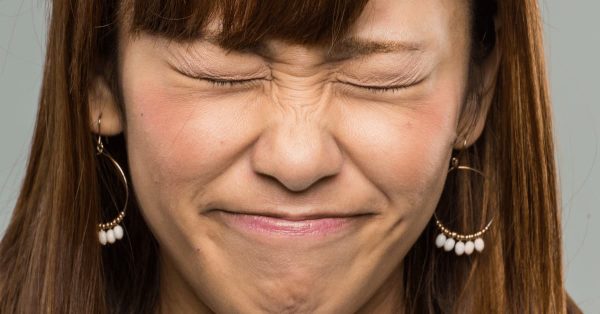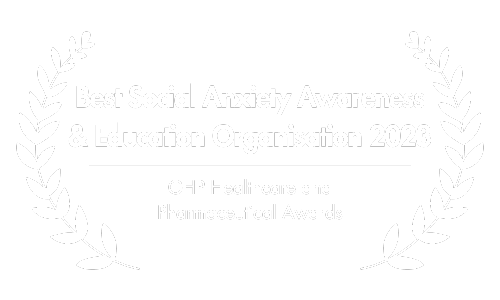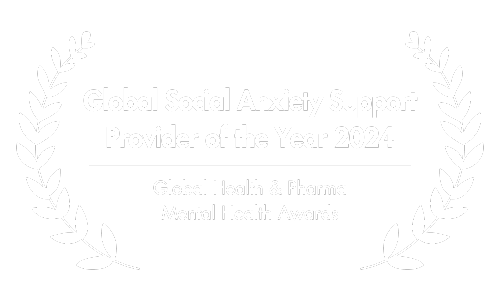Relaxation-Induced Anxiety: Why You Get Anxious When Trying to Relax
Relaxation techniques, such as progressive muscle relaxation, deep breathing, biofeedback and mindfulness meditation can successfully reduce anxiety for most individuals.
However, this is not the case for everyone. For a certain subgroup of people, these same practices can have adverse effects, leading to increases in anxiety when engaging in them (Heide & Borkovec, 1983).
Such initiation and exacerbation of anxiety following attempts to calm down the body’s stress response is referred to as relaxation-induced anxiety (RIA).

Here, we will have a closer look at this phenomenon, examine why and to whom it occurs, and conclude with some practical takeaways for those who are affected.
Anxious When Trying to Relax – Afraid of Calming Down?
Relaxation techniques are typically among the first recommendations for people with elevated levels of stress and anxiety.
And this has its reasons, as literature backing up their anxiety-reducing effects has been piling up over the last decades.
However, many people who give these techniques a try cannot seem to harvest their benefits.
What is more, there are certain individuals who report increased anxiety symptoms when trying to relax (Carrington, 1977).

People who fall into this group typically experience one or several of the following symptoms when engaging in relaxation techniques:
- a pounding heart
- increased perspiration
- trembling extremities (hands or legs)
- rapid breathing or shortness of breath
- feelings of restlessness, among others.
Because these physical manifestations are the result of deliberate attempts to relax, this phenomenon has been coined “relaxation-induced anxiety” (RIA).
A study screening 300 university students found that 15% of them were affected by RIA (Luberto, Cotton, & McLeish, 2012). Clinical practice and anecdotal reports suggest that its prevalence may be even higher.
What is Relaxation-Induced Anxiety?
Relaxation-induced anxiety refers to an increase in stress, anxiety, or physical arousal following attempts to sooth the sympathetic nervous system, typically through relaxation techniques, such as mindfulness meditation or deep breathing.
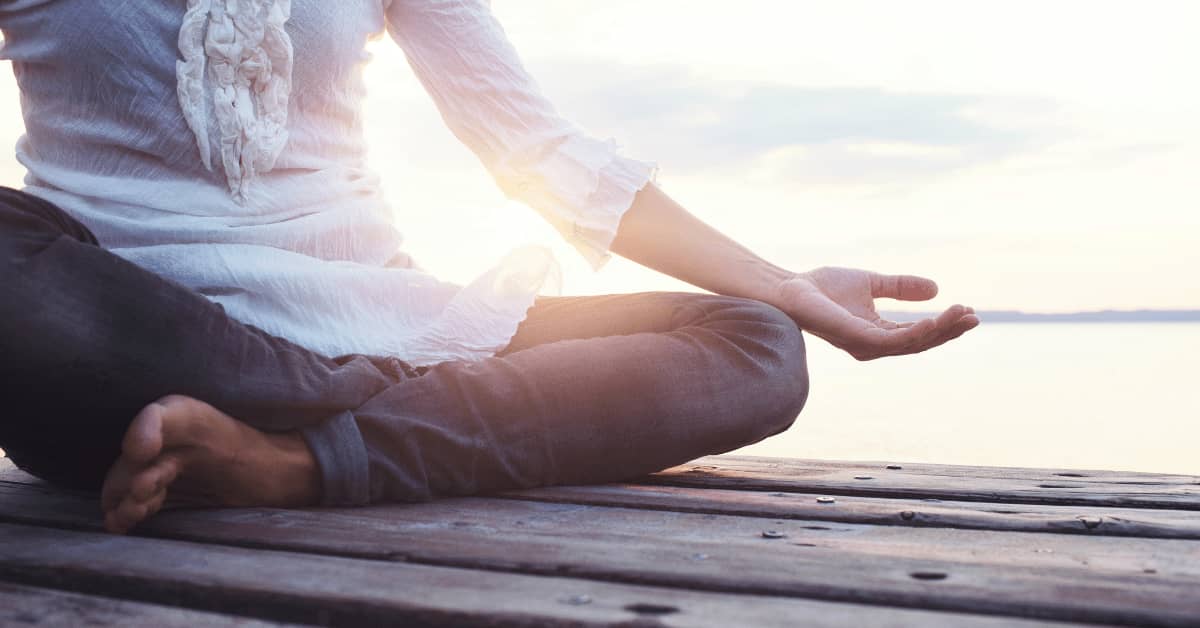
RIA has been found to be more frequent among people who experience clinically significant levels of anxiety.
More specifically, it has been suggested that afflictions such as asthma, generalized anxiety disorder, agoraphobia and social anxiety disorder may favor RIA (Heide & Borkovec, 1984; Luberto, Cotton, & McLeish, 2012).
In clinical practice, this phenomenon is all too often overlooked, resulting in paradoxical, and therefore negative, treatment effects.
What Causes Relaxation-Induced Anxiety?
The exact mechanisms underlying relaxation-induced anxiety remain unclear. However, the following hypotheses are likely to play a role (Heide & Borkovec, 1984).
Sensory & Physiological Changes May Be Perceived as Unpleasant
For some people, especially those who are chronically anxious or tense, sensations related to parasympathetic activity may feel unfamiliar (Budzynski, Stoyva, & Pfeffer, 1980).
The parasympathetic nervous system (also called the rest and digest system) is responsible for inducing a relaxation response, among other functions.
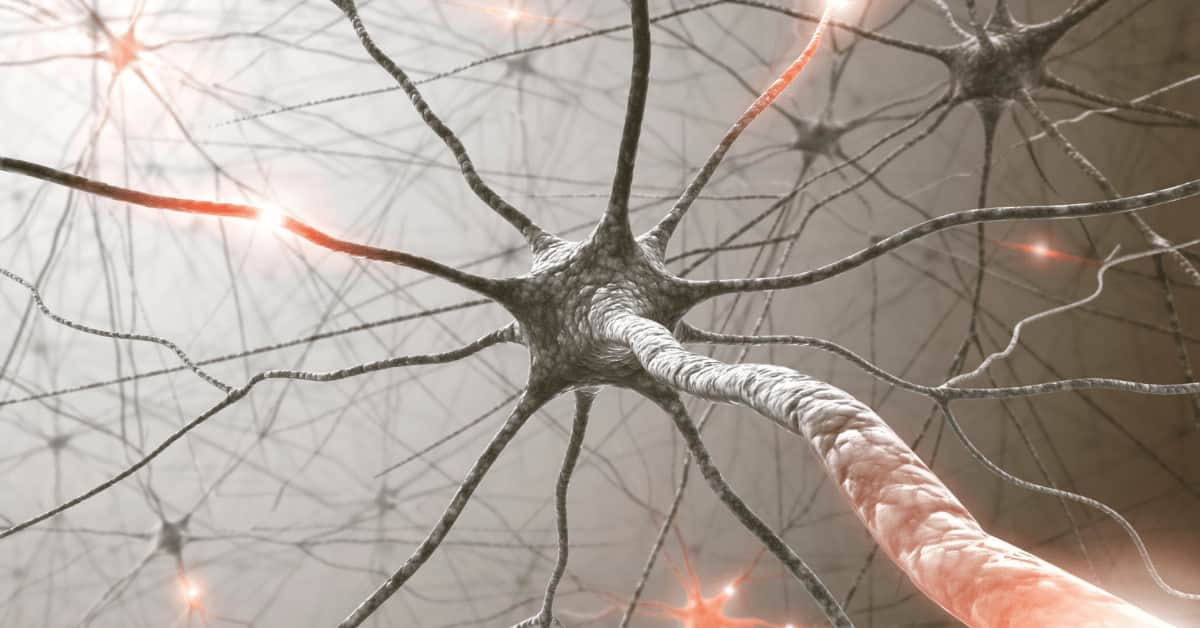
When activated, such as through a relaxation technique, sensations like heat, cold, heaviness, or floating may be perceived (Budzynski, Stoyva, & Pfeffer, 1980; Carrington, 1977; Kanellakos & Lukas, 1974).
Likewise, the body’s relaxation response may trigger different types of sensorial images (auditory, olfactory, visual, gustatory), which are perceived as unpleasant.
In addition, relaxation typically comes along with physiological changes, such as spontaneous muscular-skeletal activation like twitches and/or small tics (Fenwick et. al., 1977; Goleman, 1971).
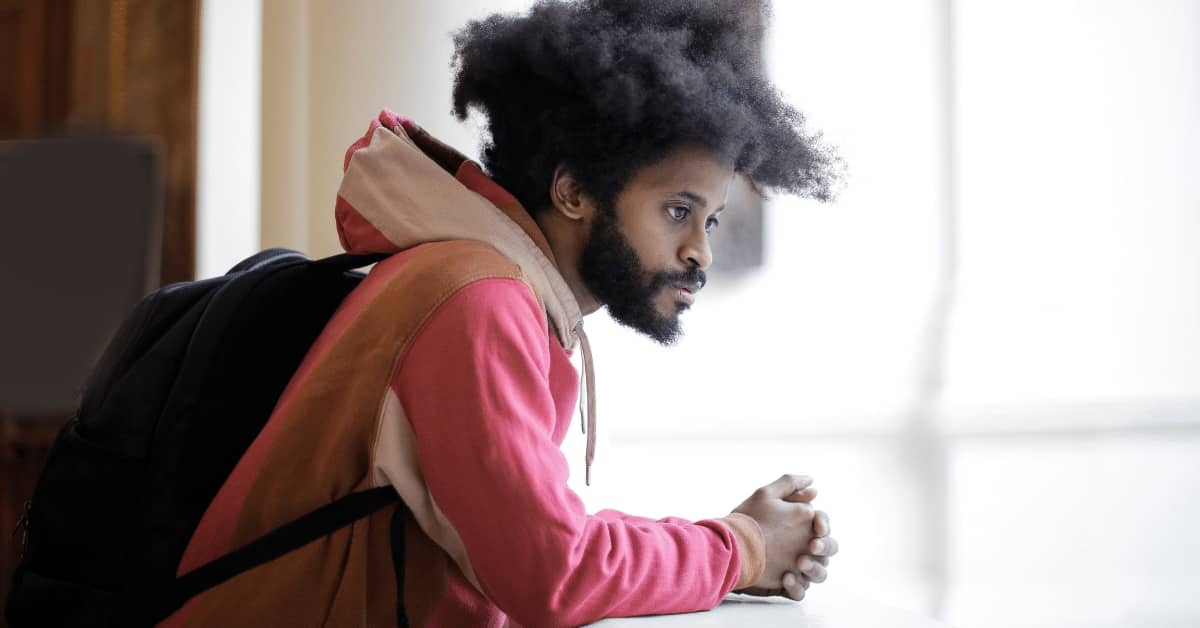
Techniques that aim to induce a relaxation response may lead to sudden outbursts of sympathetic nervous system activity (Carrington, 1977).
This part of the nervous system is responsible for physiological and physical activation and may cause symptoms such as trembling extremities, increased perspiration, or a pounding heart.
Physiological manifestations of this type may be experienced as distressing by people who are trying to relax, resulting in an anxiety response.
Unpleasant Thoughts & Feelings May Arise When Relaxing
In some cases, relaxation may open the door for a range of uncomfortable feelings or disturbing thoughts (Carrington, 1977; Glueck & Stroebel, 1975; Maupin, 1965).
For example, sadness or anger may arise seemingly out of nowhere. Other people may struggle with unpleasant thoughts or images that come to mind during relaxation.
It has been pointed out that the type of cognitive-emotional content experienced while practicing relaxation techniques may differ from that of ordinary conscious content (Carrington. 1977; French, Schmid, & Ingalls; 1975).

That is, the nature of content may be increasingly aggressive, sexual, instinctive or primitive, which is thought to be brought about by decreased activity in the limbic system (Glück & Ströbel, 1975).
Cues of Relaxation May Have Been Conditioned to Fear
People with a history of being punished during times of relaxation (or times of feeling comfortable and safe) may experience anxiety as soon as they begin to relax (Denny, 1976).
In such cases, cues related to relaxation, such as the physiological changes mentioned above, may have been conditioned to the emotion of fear.
As signals of beginning relaxation predict negative outcomes for these individuals, starting to relax indicates danger. Therefore, relaxation can trigger an anxiety response.
A different explanation based on fear conditioning postulates that certain stimuli experienced during relaxation may resemble cues associated with negative or traumatic events (Heide & Borkovec, 1984).

For example, the brain of a person who suffered serious childhood illness may associate physiological sensations occurring during relaxation with this traumatic experience, as they may be very similar or even identical in nature.
Other examples mentioned in the literature include memories of drug overdose and physical or mental over-exhaustion.
In all these cases, the fear conditioning resulting from the past traumatic experience might trigger an anxiety response when faced with coinciding stimuli, even if they occur during relaxation.
Fears of Losing Control May Trigger Anxiety
Another theory regarding fearful reactions to stress-relief is a subjectively experienced lack of control (Carrington, 1977).
According to this hypothesis, it is not so much about the aversive nature of thoughts, feelings or images that may arise during relaxation, but more about the perceived level of control the individual perceives to have over these experiences.

If a person is carried away by unpleasant cognitive or affective sensations and cannot seem to detain this process, they may react with anxiety to such experiences.
Typically, the underlying motivation of a marked need to stay in control is the desire to avoid adverse outcomes (Walsh, 1977).
Fear of losing control typically translates to the person being afraid of the possible negative consequences that may arise as a result (Seligman, 1975).
That is, some individuals may associate the loss of control with psychological states such as helplessness, fear, or depression.

In the case of social anxiety, loss of control may also lead to negative evaluation and feelings of humiliation.
For example, a person who loses control over their internal level of arousal during a public speaking task may suffer being judged or looked down at by the audience.
Therefore, individuals who dread the loss of control are likely to fear potential internal and/or external consequences that may arise as a result.
Fear of the Unconscious & the Loss of the Ego May Prevent True Relaxation
According to psychoanalytic theory, relaxation and the unconscious are closely linked.
Fear of relaxation, especially on an emotional and mental level, has been observed in people who have an obsessional relationship with their profession, who are highly independent and self-reliant, and who are overly attached to a logical view of reality (Martin, 1951).

It has been reported that individuals affected by these traits tend to experience a fear of the dark or of going to sleep, as well as display a strong aversion towards anesthetics.
Viewing true relaxation as the ability to allow the ego to stop fighting against unconscious drives and conflicts, as well as relinquishing control to them, RIA may hint at a fear of the unconscious and the loss of ego control (Martin, 1951).
Patients May Fear Handing Over Control to the Therapist
In the therapeutic setting, the patient’s interpersonal problem areas tend to be relived in their relationship with their therapist. This phenomenon is referred to as transference.
For example, a patient may have grown up with overly controlling parents. Because of that, she started to rebel against this behavior, making sure she would control her relationships instead of others.

If this patient starts a therapeutic process as an adult, the mentioned interpersonal behavioral pattern is likely to emerge in the therapeutic relationship, meaning that she would try her best to be the one who calls the shots in therapy (Malan, 1979).
If her therapist were to apply relaxation techniques with this patient, an anxiety reaction might arise, as relinquishing control to the therapist would likely remind her of being controlled by her parents.
Evolution-Based Muscular Activation May Be a Means of Self-Protection
From an evolutionary perspective, fears of falling asleep and fear of falling from heights are closely linked to the fear of relaxation (Lowen, 1975).
As our ancestors’ survival depended on them not falling from trees, sensations related to falling, heaviness and sinking meant acute danger.

Because of that, chronic muscle tension activated by these sensations became an adaptive trait and was passed on from one generation to the next.
Traces of this genetic equipment may cause some people to activate their fight-flight-freeze response when starting to relax.
Relaxation May be Disrupted by Conscious Efforts to Relax
Applying conscious effort when trying to achieve certain goals is very helpful in many areas of life.
However, when applying effort to events that tend to show up spontaneously, such attempts are typically counterproductive (Watzlawick, Weakland, & Fisch, 1974).
For example, a person who tries to fall asleep by applying will power typically finds themselves staying awake.
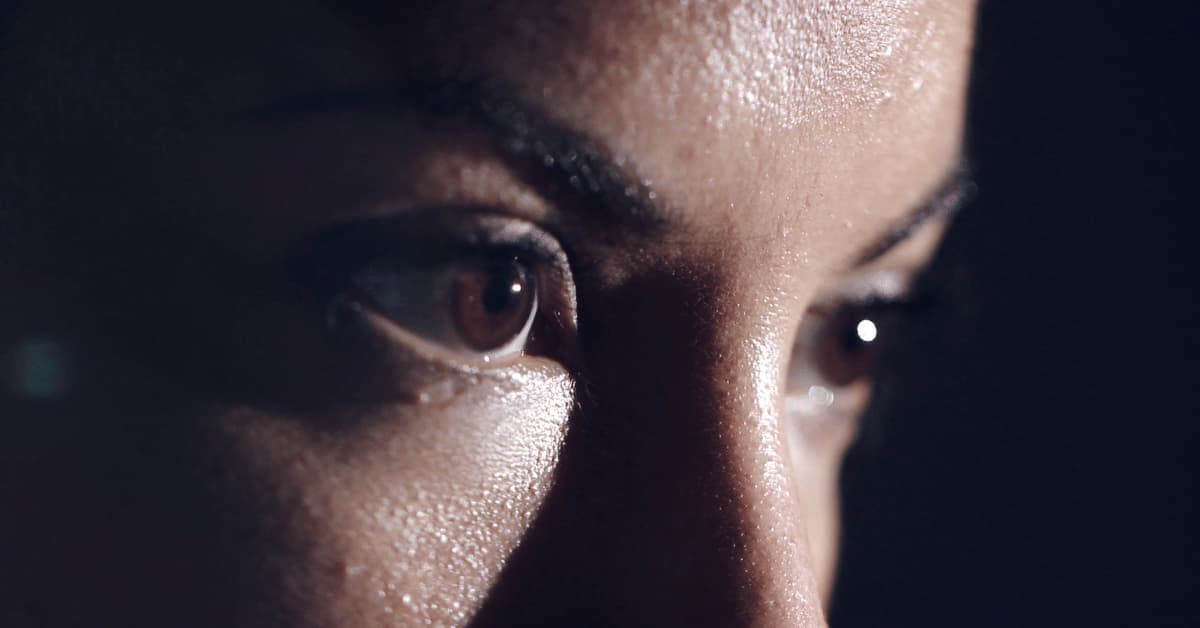
The same holds true for physiological events that are under autonomic or unconscious control, such as those involved in relaxation (Heide & Borkovec, 1984).
Applying conscious effort to make these events arise is likely to impede that they occur.
For example, applying conscious effort to avoid sexual dysfunction or stuttering will typically exacerbate these symptoms (Folge, 1978).
Individuals who want to avoid the negative consequences of not being able to relax, such as elevated levels of stress and its consequences, may fall prey to this paradox by trying too hard.
Relaxation May be Viewed as a Waste of Time
In our modern world, there are many people who experience a constant need for being busy. Making progress and moving towards their goals has become their natural state of being.
Equipped with this type of mindset, they tend to maintain a continually high level of activity, which easily gets in the way of being calm and doing nothing (Heide & Borkovec, 1984).
Oftentimes, these people hold the underlying belief that they would be overwhelmed with work if they wasted their time with relaxation.
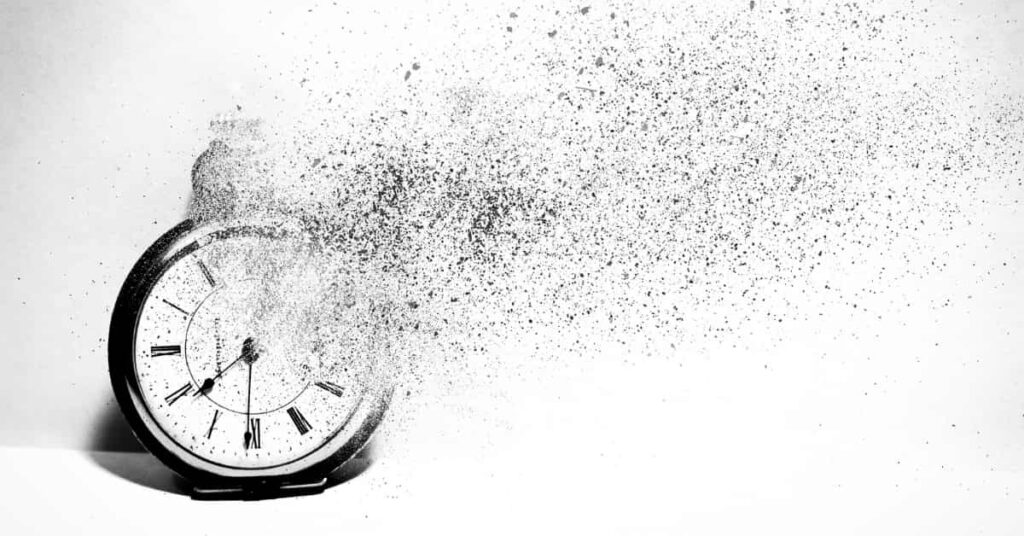
If they do give relaxation techniques a try, the time spent practicing is often filled with thoughts about how they are wasting their time instead of being productive (Walsh, 1977).
These thoughts and underlying beliefs may trigger anxiety reactions during the relaxation process (Heide & Borkovec, 1984).
Anxiety-Sensitivity May Exacerbate Feelings of Anxiety
Many individuals with mental health disorder are convinced that feelings of anxiety may have negative consequences (Ascher, 1980).
For example, a person with social anxiety disorder may believe that being overly anxious when meeting new people will lead to negative evaluation.
A person with panic disorder might be convinced that feelings of anxiety could lead to a heart attack.
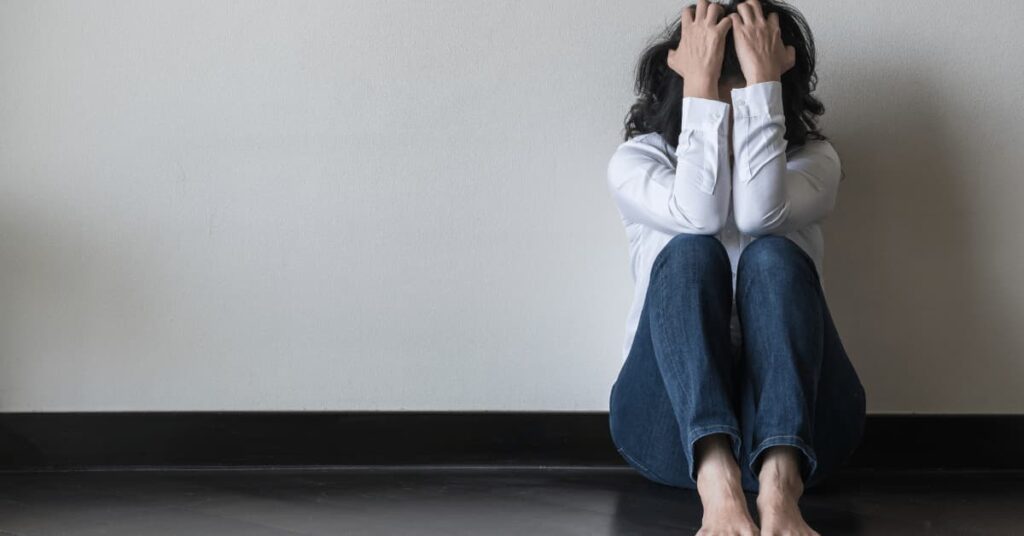
Therefore, the feelings of anxiety themselves are feared by these individuals. This phenomenon is referred to as anxiety sensitivity (Mantar, Yemez, & Alkın, 2011).
Many relaxation techniques instruct patients to direct their attention to physical sensations or towards their upcoming thoughts and feelings.
By doing so, they are likely to become aware of their own anxiety and its related sensations.
People with marked anxiety sensitivity may then experience an increase in their anxiety levels as a result (Heide & Borkovec, 1984).
Fear of Self-Confrontation Might Cause Anxiety Reactions
It has been found that a considerable proportion of people have a marked aversion to self-focused attention (Carrington, 1977).
Directing their attention inwardly and being confronted with themselves may cause distress to arise.
For example, certain people react with increased arousal and avoidance behavior when facing mirrors and cameras, or when listening to their own recorded voice (Holzman, Rousey and Snyder, 1966; Wicklund, 1975).
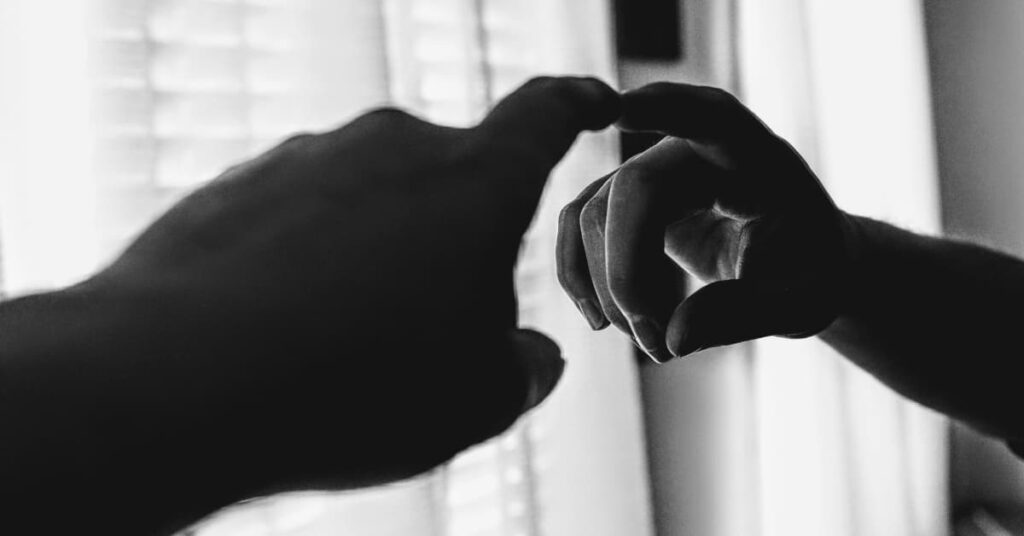
It has been suggested that self-focused attention increases awareness of disliked aspects of the self, which then results in unpleasant emotions such as anxiety (Sackheim & Gur, 1978).
For example, people who are dissatisfied with their objective self may be prone to experience anxiety though self-confrontation (Heide & Borkovec, 1984).
Fears & Concerns Unique to Each Individual May Arise During Relaxation
As anyone who has engaged in mindfulness practice would surely agree on, worries about the past and the future form a big part of our daily lives.
When applying relaxation techniques, concerns about one’s financial situation or relationship problems, as well as rumination about events in the past or situations in the future are likely to arise.

While some people easily disengage from them, others get caught up in them all too often.
Disruptive and distracting thoughts of an aversive nature are likely to constitute another reason for relaxation induced anxiety (Bernstein & Borkovec, 1983).
How to Deal With Relaxation-Induced Anxiety?
As you can see, there are many possible reasons why people may become anxious when trying to relax.
Research is ongoing and a lot remains to be uncovered. However, the following recommendations may be helpful to people who experience RIA.
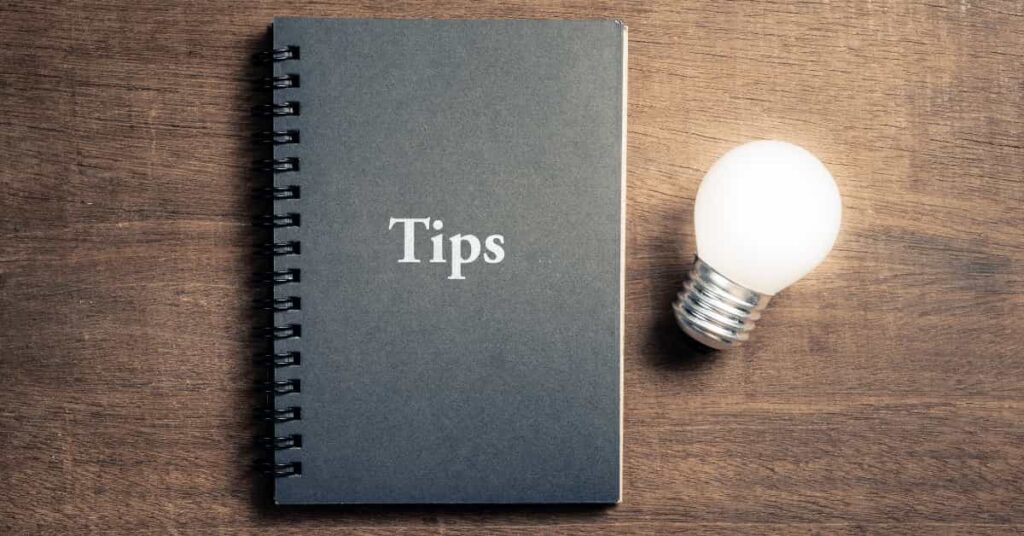
Of course, what to do about relaxation-induced anxiety strongly depends on the specific reasons a person experiences it.
Therefore, not all of the following tips will work for everyone.
Switch to a Different Relaxation Technique
This recommendation is probably the most obvious one. If you become anxious using a specific relaxation technique, try a different one.
It has been found that many people who experience RIA when applying a certain technique will not do so when switching to another one (Heide & Borkovec, 1983).
For some people, this simple change may already do the trick.
Lower Your Expectations
People who make use of relaxation techniques obviously do so in order to relax.
However, this desire can lead to paradoxical effects, increasing stress and anxiety instead of reducing them.
In ancient Buddhist and Hindu culture, this paradox has been understood for many centuries.
The mindfulness practices that emerged from these cultures are practiced for the sake of practicing them, not to achieve a specific result.
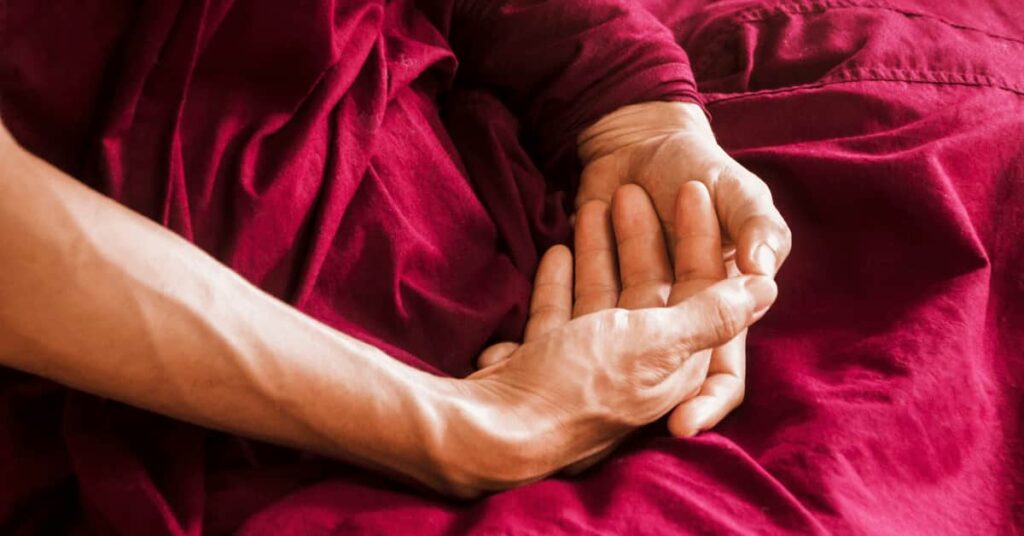
In modern Western society, where mindfulness is typically used as a means of self-improvement, this paradox is often overlooked.
If you are affected by this phenomenon, you may want to reduce your expectations regarding relaxation practice and focus on acceptance of whatever happens during the process.
In other words: try to relax without any specific goal or outcome in mind.
Seek Repeated Exposure
As we have discussed above, relaxation may lead to anxiety because of fear conditioning that took place in the past.
Other reasons are the unfamiliarity with the sensations and physiological changes associated with relaxation, or the fear of experiencing anxiety itself.
In all these cases, repeated exposure to relaxation for an extended period of time may serve as solution.

That is, just as in traditional behavioral therapy, you face the feared (but harmless) stimuli as often and as long as possible for your brain to realize that there is no danger attached to it.
With time, your anxiety reaction caused by relaxation is likely to subside.
Try Paradoxical Intentions
If you are among the people who exhibit a strong need for control, you likely monitor your physiological responses closely to make sure you remain in charge of your mind and body.
However, more often than not, this increases anxiety instead of reducing it.
It has been suggested that paradoxical interventions may help people affected by this dilemma (Asch, 1980, Folge, 1978).
For example, if you find that your attempts to relax and the monitoring of inner processes increases your anxiety instead of reducing it, you may want to try to enhance (yes, enhance) your anxiety and stress as much as you can.

Such paradoxical intentions have been found to work for many people.
For example, insomniacs who try to stay awake when lying in bed fall sleep quicker than when trying to sleep.
The same seems to hold true for some people with relaxation-induced anxiety.
Practice Mindful Acceptance
An essential part of mindfulness practice is an unconditional acceptance of ongoing psychological experiences.
Many people who experience RIA experience major difficulties with this process, judging upcoming feelings of anxiety and putting up a fight against them.
As you surely know by now, this tends to intensify stress and anxiety even further.
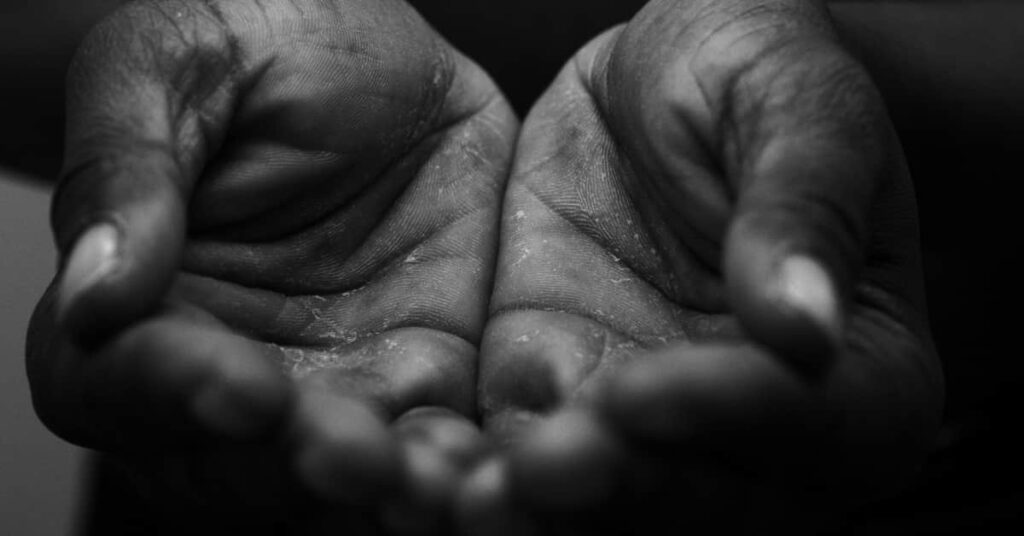
Therefore, if you experience an increase in anxiety when trying to relax, you may be well-advised to choose mindfulness practice as your technique of choice.
By engaging in it regularly, you will slowly but surely become better at accepting uncomfortable and disturbing feelings, which is likely going to expand to any other relaxation technique you may practice.
To get started with mindfulness practice, you may want to see our introductory guide here.
Explore Potentially Underlying Fears
As we have discussed above, unconscious conflicts and a fear of self-reflection sometimes lie at the heart of relaxation-induced anxiety.
If none of the other potential causes of RIA resonate with you, chances are that some unconscious part of you may be afraid of being still.

As this part is unconscious, you do not have easy access to it and may need the help of a professional (in this case a therapist with a psychodynamic background is a good option).
However, with a bit of self-reflection you may even uncover some hidden fears yourself. Making them conscious is an essential step to resolve any obstacles that impede true relaxation.
Set Aside a Fixed Time to Relax
If you form part of the so-called “hustle culture” and fear that you are losing time when trying to relax, the answer to your RIA is quite obvious:
Understand the need for rest, downtime and relaxation and make time for them.

It is no secret any longer that workaholics and overly stressed people easily burn out and get sick if they do not find a way to change their lifestyle.
Setting aside a fixed time to relax is a first step into the direction of a healthier and a more sustainable lifestyle.
Additionally, it should help you reduce your relaxation-induced anxiety.
Do Not Try to Force a Relaxation Response
Having made it this far in this article, this last tip is probably crystal clear to you by now.
Do not try to force relaxation.
The more effort you employ to bring about a relaxation response, the less likely it is to occur. In fact, this type of mindset usually exacerbates stress and anxiety.
In our modern society, we have learned that with will power we can achieve almost anything.

While this may be true for many things, our autonomous physiological and psychological reactions do certainly not fall into this category.
An anxiety-reducing relaxation is the result of letting go. We hope this article helps you with this endeavor.
Participate in a Research Study!
If you are affected by social anxiety, you can help researchers and clinicians better understand the condition and improve treatment efficacy by participating in a research study.
To take part, you can click here to open a short, quick survey in a new browser window, or simply fill out the form provided below. Thank you for your participation!
By the way, we offer a free 7-day email course for those looking to conquer their social anxiety.
You will gain insight into your triggers and symptoms, learn practical tools for both short-term and long-term anxiety relief, and get on the path to a happier, more confident you with expert guidance.
If you are interested, click the button below to learn more and get started!
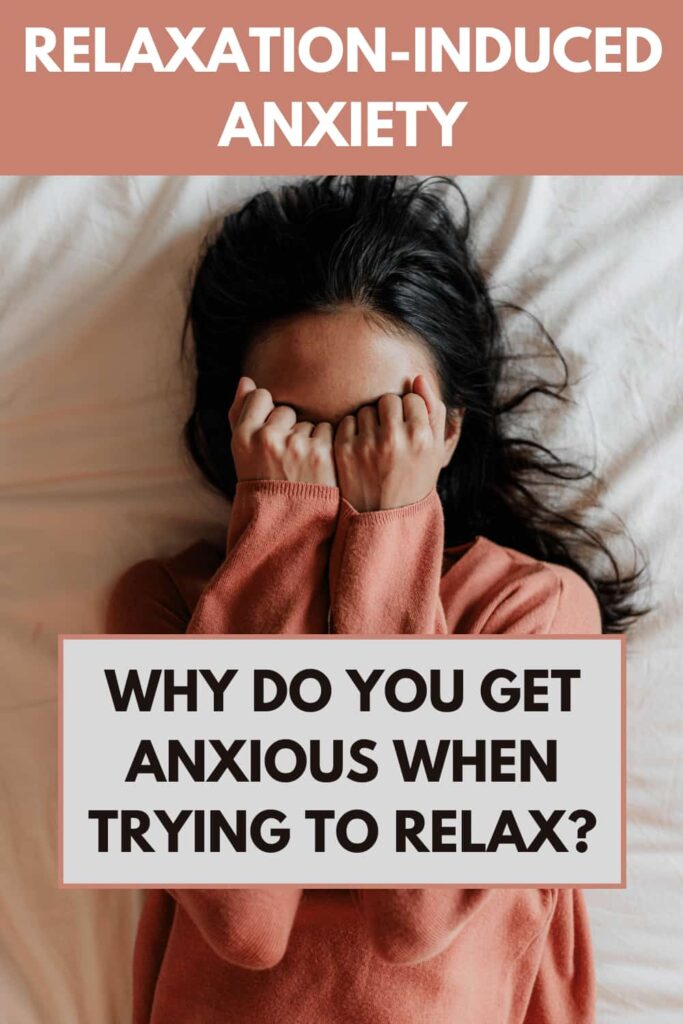
Pin | Share | Follow
[DISPLAY_ULTIMATE_SOCIAL_ICONS]
Ascher, L. M. (1980). Paradoxical intention. In A. J. Goldstein, & E. B. Foa, Handbook of behavioral interventions: A clinical guide. New York: Wiley.
Budzynski, T. H., Stoyva, J. M., & Peffer K. E. (1980). Biofeedback techniques in psychosomatic disorders. In Handbook of Behavioral Interventions. (Edited by Goldstein A. and Foa E. B.). Wiley, New York.
Carrington, P. (1977). Freedom in Meditation. Doubleday-Anchor, New York.
Denny, M. R., (1976). Post-aversive relief and relaxation and their implications for behavior therapy. Journal of Behavioral Therapy & Experimental Psychiatry. 7, 315-322.
Fogle D. (1978) Learned helplessness and learned restlessness. Psychotherapy: Theory, Research & Practice. 15, 39-47.
French, A. P., Schmid, A. C., & Ingalls, E. (1975). Transcendental meditation, altered reality testing, and behavioral change: A case report. Journal of Nervous and Mental Disease, 161(1), 55–58. https://doi.org/10.1097/00005053-197507000-00007
Goleman D. (1971) Meditation as meta-therapy: hypotheses toward a proposed fifth state of consciousness. Journal of Transpersonal Psychology. 3, 1-26.
Glueck, B. C., & Stroebel, C. F. (1975). Biofeedback and meditation in the treatment of psychiatric illnesses. Comprehensive psychiatry, 16(4), 303–321. https://doi.org/10.1016/s0010-440x(75)80001-0
Heide, F. J., & Borkovec, T. D. (1983). Relaxation-induced anxiety: paradoxical anxiety enhancement due to relaxation training. Journal of consulting and clinical psychology, 51(2), 171–182. https://doi.org/10.1037//0022-006x.51.2.171
Heide, F. J., & Borkovec, T. D. (1984). Relaxation-induced anxiety: Mechanisms and theoretical implications. Behaviour Research and Therapy, 22(1), 1–12. https://doi.org/10.1016/0005-7967(84)90027-5
Holzman, P. S., Rousey, C., & Snyder, C. (1966). On listening to one’s own voice: Effects on psychophysiological responses and free associations. Journal of Personality and Social Psychology, 4(4), 432–441. https://doi.org/10.1037/h0023790
Kanellakoj, D. P., & Lukas, J. S., (Eds) (1974). The Psychobiology of Transcendental Meditation. Benjamin, Menlo Park. California.
Lowen, A., ( 1975). Bioenergetics. Penguin, New York.
Luberto, C., Cotton, S., & McLeish, A. (2012). OA14.01. Relaxation-induced anxiety: predictors and subjective explanations among young adults. BMC Complementary and Alternative Medicine, 12(Suppl 1), O53. https://doi.org/10.1186/1472-6882-12-S1-O53
Mantar, A., Yemez, B., & Alkın, T. (2011). Anxiety sensitivity and its importance in psychiatric disorders. Turk psikiyatri dergisi = Turkish journal of psychiatry, 22(3), 187–193.
Martin, A. R., (1951). The fear of relaxation and leisure. American Journal of Psychoanalysis. 11, 42-50.
Maupin, E. W., (1965). Individual differences in response to a Zen meditation exercise. Journal of Consulting Psychology. 29, 139-145.
Sackheim, H. A., & Gur, R. (1979). Self-deception, other-deception, and self-reported psychopathology. Journal of Consulting and Clinical Psychology, 47, 213-215.
Seligman, M. E. P. (1975). Helplessness: On depression, development, and death. W H Freeman/Times Books/ Henry Holt & Co.
Walsh R. N. (1977) Initial medltativc experiences: Part 1. Journal of Transpersonal Psychology. 9, 151- 192.
Watzlawick, P., Weakland, J. H., & Fisch, R. (1974). Change: Principles of problem formation and problem resolution. W. W. Norton.
Wicklund R. .A ( 1975) Objective self-awareness. In Advances in Experimental Social Psychology. Vol. 8 (Edited by Berkowitz, I.). Academic Press. New York.
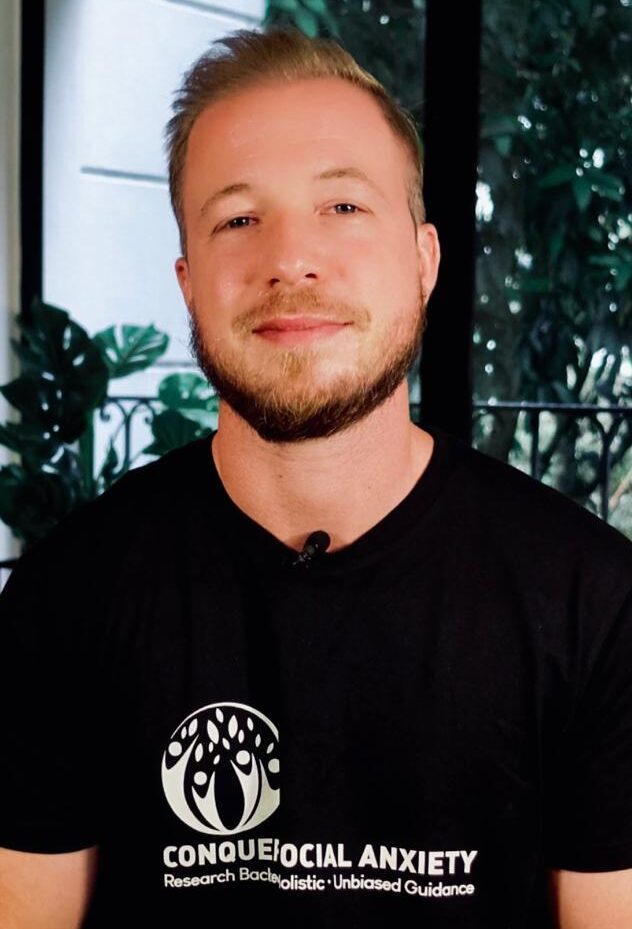
About the Author: Martin Stork
Martin is a professional psychologist with a background in physical therapy. He has organized and led various support groups for people with social anxiety in Washington, DC and Buenos Aires, Argentina. He is the founder of Conquer Social Anxiety Ltd, where he operates as a writer, therapist and director. You can click here to find out more about Martin.
